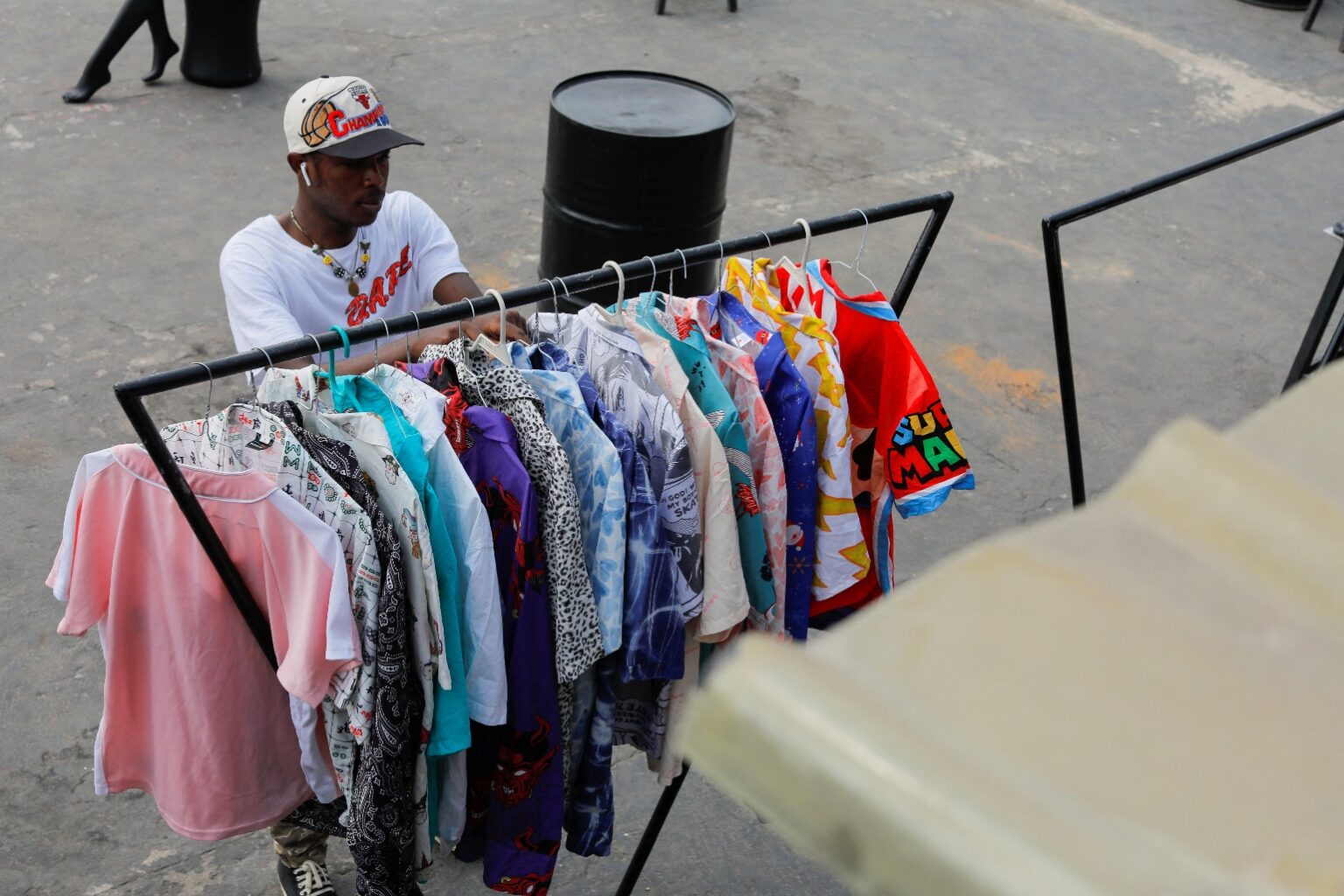Introduction
Starting a thrift business in Ghana presents a unique opportunity for you to engage in a profitable and socially responsible venture. A thrift business involves selling second-hand goods, offering you a way to provide affordable products while promoting sustainability.
Ghana, located in West Africa, is renowned for its vibrant culture and growing economy. The country’s diverse population and increasing urbanization create a fertile ground for thrift stores to thrive. By starting a thrift business in Ghana, you tap into a market with a strong demand for cost-effective and environmentally friendly shopping options.
You benefit from Ghana’s strategic position as a trade hub and its supportive business environment. As you embark on this venture, understanding the local market dynamics and consumer preferences will be crucial for your success.
1. Research Market Demand
To start a thrift business in Ghana, you need to conduct thorough market research to understand local consumer behavior. Begin by exploring neighborhoods and shopping districts where thrift stores are popular.
Observe what types of second-hand goods are in demand, such as clothing, electronics, or household items. Engage with local residents to gauge their preferences and spending habits. You should also analyze competitors to identify gaps in the market and opportunities for differentiation.
Assess the economic factors in Ghana that could affect your business, including average income levels and disposable spending. Utilize surveys or focus groups to gather detailed insights into customer needs. This targeted research will provide you with a clear understanding of the thrift business landscape in Ghana and help you make informed decisions for your venture.
2. Develop a Business Plan
You need to develop a comprehensive business plan as it is crucial for starting a thrift business in Ghana. You should begin by outlining your business model, including how you will source and price second-hand goods. Define your target market specifically, considering Ghana’s diverse population and its shopping preferences.
Incorporate a detailed financial plan that includes startup costs, operating expenses, and revenue projections based on Ghanaian market conditions. You need to identify your unique selling proposition, such as offering high-quality items or providing exceptional customer service.
Plan your marketing strategy tailored to Ghana’s digital and traditional media landscape, including social media platforms popular in the country. Additionally, you should outline your operational plan, including staffing needs and store layout. This detailed plan will serve as a roadmap for launching and growing your thrift business effectively in Ghana.
3. Register Your Business
Registering your thrift business in Ghana involves several specific steps to ensure legal compliance. You must start by choosing a business name that reflects your thrift store’s brand and is unique within Ghana. You then need to register this name with the Registrar General’s Department, which is the official body for business registration in Ghana.
Prepare and submit the required documents, such as a completed application form, proof of identity, and a copy of your business plan. Additionally, you will need to acquire a Tax Identification Number (TIN) from the Ghana Revenue Authority for tax purposes.
Registering with the Social Security and National Insurance Trust (SSNIT) is also necessary if you plan to hire employees. Ensure you obtain any additional permits or licenses specific to your locality, as regulations can vary across different regions in Ghana.
4. Find a Location
The next vital step to launching your thrift business in Ghana is to find a suitable location. You should consider areas with high foot traffic, such as popular shopping streets or near educational institutions, where there is a steady flow of potential customers.
Research the different districts and neighborhoods to identify locations that align with your target market. Ensure that the premises are in a safe and accessible area, with adequate space for displaying and storing your thrift items.
You need to verify the property’s zoning regulations to ensure it is permissible for retail use. Additionally, consider the rental costs and lease terms, which should fit within your budget and business plan.
Evaluate nearby competition and assess the overall commercial viability of the area. Securing a prime location will significantly enhance your thrift business’s visibility and success in Ghana.
5. Source Quality Inventory
Sourcing quality inventory is a pivotal step for your thrift business in Ghana. You should start by establishing relationships with local sources, such as charitable organizations, second-hand goods dealers, and community donation drives.
Visiting local markets and estate sales can also provide a steady supply of items. Explore partnerships with organizations that can supply you with donated goods, potentially at reduced costs. You must ensure that the items you source meet quality standards and are appealing to your target customers.
Consider the seasonal trends and preferences specific to Ghanaian consumers when selecting inventory. You might also import goods from other countries, but be mindful of import duties and regulations. Efficiently managing your inventory will be essential for maintaining a diverse and attractive selection of thrift items for your customers.
6. Set Competitive Prices
Be aware that setting competitive prices for your thrift business in Ghana requires careful consideration of local market dynamics. You need to analyze the pricing strategies of existing thrift stores to understand the price range for similar items.
Consider the purchasing power of your target market in Ghana, adjusting prices to ensure affordability while maintaining profitability. You should factor in costs such as procurement, transportation, and store overheads when setting prices.
Research popular pricing models in Ghana, such as discount offers or bundle deals, which can attract more customers. Ensuring transparency in your pricing strategy will build trust with your customers.
You might also conduct surveys to gauge what price points are acceptable to potential buyers. Balancing competitive pricing with quality will position your thrift business favorably in Ghana’s market, helping you attract and retain customers.
7. Create a Marketing Strategy
It’s important you create a marketing strategy for your thrift business in Ghana which involves understanding local consumer behavior and leveraging popular media channels.
You should start by identifying the most effective platforms for reaching your target audience, such as social media sites like Facebook and Instagram, which are widely used in Ghana. Tailor your marketing messages to highlight the affordability and unique offerings of your thrift store.
Collaborate with local influencers or community figures to boost your visibility and credibility. You can also utilize traditional marketing methods, such as flyers and radio ads, which remain influential in Ghana. Engaging in community events or sponsoring local activities can also enhance your store’s presence.
Building an online presence through a website or social media profiles will allow you to reach a broader audience. Ensuring that your marketing strategy resonates with Ghanaian consumers will drive traffic to your business.
8. Open and Promote Your Store
Opening your thrift business in Ghana requires meticulous planning and execution. You should start by setting a launch date and preparing a grand opening event to attract initial customers. Ensure that your store is fully stocked with quality thrift items and all operational systems are in place.
You need to arrange for necessary utilities, such as electricity and water, which are crucial for running your store efficiently in Ghana. Train your staff to provide excellent customer service, as this will be vital for building a loyal customer base.
You might also consider offering special promotions or discounts during the opening to draw in more customers. Advertising your grand opening through local media and social networks will maximize visibility.
Make sure you monitor your store operations closely during the initial phase as it will help you address any issues promptly and ensure a successful start for your thrift business.
Recap
To start a thrift business in Ghana, you need to research market demand, develop a detailed business plan, register your business, find a strategic location, source quality inventory, set competitive prices, create a targeted marketing strategy, and successfully open your store. Each step requires careful planning and local insight to ensure success.


















